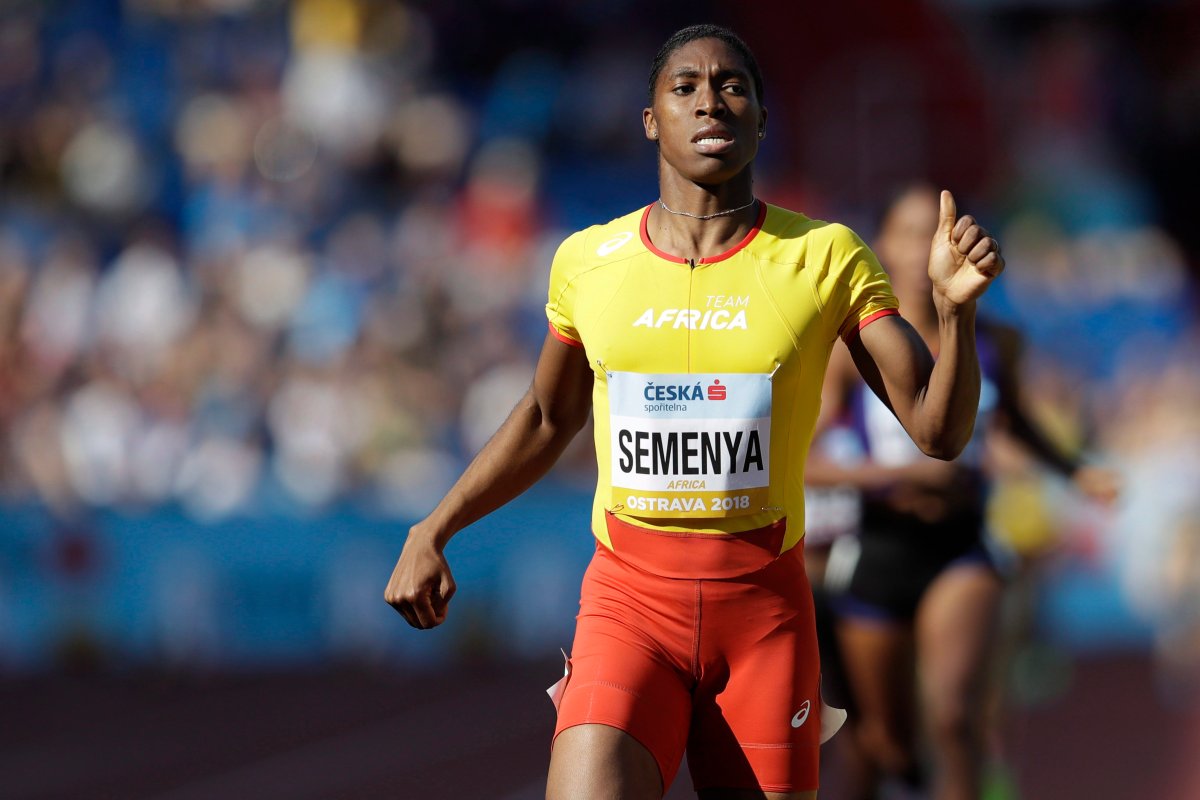Talent not testosterone is behind the success of intersex athletes such as Olympic champion Caster Semenya, scientists said on Wednesday, stepping into a toxic battle of the sexes over fairness in sport.

The editorial in the British Medical Journal flies counter to those who want to ban competitors with high levels of testosterone from competing in women-only events, and comes days before a key ruling on Semenya’s eligibility to run.
WATCH: Feb. 25, 2017 — 17-year-old transgender boy wins Texas girls wrestling title

Activists on one side of the debate say high testosterone in some athletes who are born with indeterminate sex powers them to victory and leaves women disadvantaged in their own events.
But the BMJ scientists disagreed.
“We venture that the Olympian gods smile down on winners like Mokgadi Caster Semenya when they perform extraordinary feats of human endeavour,” the scientists said.
There is no direct link between testosterone levels and athletic performance, Cara Tannenbaum, a professor at the University of Montreal, and Sheree Bekker, a researcher at the University of Bath, wrote in the medical journal.
“This mythical perception of testosterone as the elixir of performance… is not backed up by the science,” Bekker told the Thomson Reuters Foundation.
Fair play
The finding comes amid bitter division among athletes and scientists over what is fair play in female sport, an issue under ever-increasing scrutiny since Semenya was crowned 800m world champion in 2009.
Up to 1.7 percent of babies are born with an indeterminate sex, according to the United Nations, often undergoing surgery to bring their genitalia into line with gender norms.
Moves are underway to force intersex sportswomen to suppress an above-average testosterone count, which could prevent champions like Semenya from racing at top level.
READ MORE: Trans sportswomen hit back at tennis ace Martina Navratilova’s ‘cheating’ comments
In April 2018, the International Association of Athletics Federations (IAAF) ruled that female intersex athletes competing in 400m to mile-long races must keep their testosterone below a certain level for at least six months.
Olympic 800m champion Semenya filed a legal challenge to the restriction, with a ruling due on March 26.
Some rivals say the 28-year-old’s hyperandrogenism gives an unfair advantage. The condition, also known as a Difference of Sex Development (DSD), is characterised by higher than usual levels of testosterone, a hormone that increases muscle mass, strength and haemoglobin, which affects endurance.
WATCH: Feb. 17 — Protecting trans and gender-diverse youth

The average woman has far lower testosterone levels than the average man but there is overlap in elite sport, studies say.
The IAAF’s proposed rule “greatly overestimates the role of endogenous testosterone,” said Peter Sonksen, a retired professor of endocrinology who was not part of the BMJ team.
“It is also personal and unfairly targets a brilliant athlete,” he told the Thomson Reuters Foundation via email.
However, the IAAF has also had numerous scientists come out in support of its case.
In some intersex conditions, women “get pretty much full male advantage when they go through puberty,” Joanna Harper, an expert on transgender sportswomen who gave evidence in support of the IAAF, told the Thomson Reuters Foundation.
A 2017 study of Swedish female Olympians by Angelica Linden Hirschberg, a professor of obstetrics and gynaecology who also supported the IAAF, found higher natural testosterone levels correlated with better athletic performance.



Comments